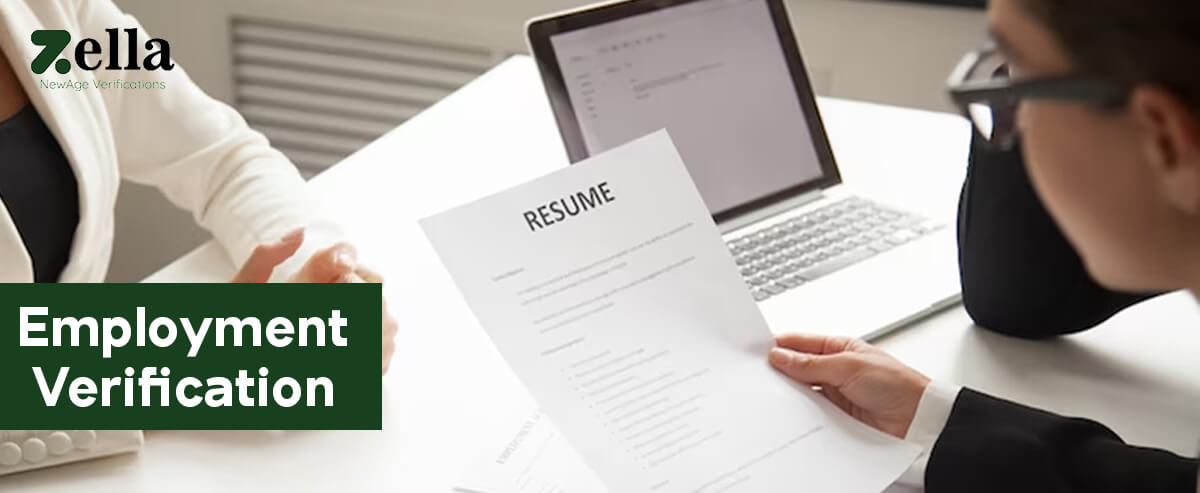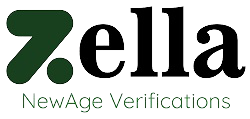
What is Employment Verification? All the Information You Need
People or organizations could ask visitors for job verification so they can confirm the information they give them. A third party can certify that you work for the organization you claim to work for by conducting an employment verification. A solid verification letter will give the necessary details without jeopardizing your privacy.
In this piece, we define employment verification, examine when it might be requested of someone, and go over the kinds of details a provider might divulge. This comprehensive guide will provide you with all the information you need to make sure you hire the best, most qualified applicant for your available spot.
What is employment verification?
There are several circumstances where employers will be asked or will make a request to verify a person’s employment history and other information about their present or previous employment. Unsurprisingly, this procedure is termed “Employment Verification.”
A corporation will frequently verify employment during the hiring process, which normally calls for thorough reference checks. Frequently, businesses are contacted for information on job verification by third-party companies, such as creditors generating new loans or property owners making sure a lessee will be able to make the required payments under a new lease.
Employment verification is the process of confirming your employment with a private entity. A government organization, for instance, may request employment verification to validate a variety of facts, including your wage information, current work status, role in the company, qualifications or accomplishments, and employment periods.
When Is Employment Verification Necessary?
A CV/Resume is more than sufficient to confirm a person’s employment status in the age of internet job searching and professional networking sites like LinkedIn. However, many prospective verifiers have the right to request better and more official documentation of employment. This typically occurs when money exchange occurs. To satisfy the requirement, multiple employment verification documents are necessary.
Loan Approval by Lenders
Lenders must examine loan applications to confirm a borrower’s work status. To confirm that the person can make payments on time, use this information. Employers may also confirm an employee’s income information if a lender demands it, in addition to their employment.
Property Owners Negotiating a Lease
An individual’s job status must be confirmed by the property owner, much like it is by loan providers, to ensure that the person can make the lease payments. Completing the process also requires consideration of your financial background. Getting ahold of the person’s bank statements will help with this.
Employers Hiring New Employees
Companies frequently look at a new hire’s employment history before making an offer. This is accomplished by contacting the references, who also require formal documents. Asking for paperwork to prove your employment is part of this stage.
Holders of Work Visas Verifying Employment
Applicants must have a job lined up in the target nation to obtain a work visa. This is also important for application renewals because the validity of the work visa will become low if the applicant has left their employment or is no more working. A person with a visa must inform the agency that approved their work permit if they leave their job.
Common Employment Verification Techniques
Some of the techniques your company may use to verify your employment include:
PoE Letter
An employer will provide a PoE (Proof of Employment) letter to formally affirm a current or former employee’s position. It comprises information about your job, such as your income, job title, duties, and employment history.
Paystubs
Pay Stubs are frequently important to confirm employment. It offers a history of a worker’s prior compensation from the employer.
References
By contacting the references the person gave, you can confirm employment in another way. Regarding the employee’s tasks and roles across the organization, a reference can be useful.
Contracts & Agreements
These records aid in demonstrating a worker’s connection to a business, but the majority of contracts and agreements typically merely demonstrate an employee’s acceptance of a job offer.
Final Remarks
It’s crucial to verify employee information because many organizations experience staff scams. Employment verification is not merely a formality but rather a necessity in high-risk areas like the financial sector. Online document verification can speed up the verification process by 90% while also producing verifiable documentation that can be helpful in court.

Leave a Comment